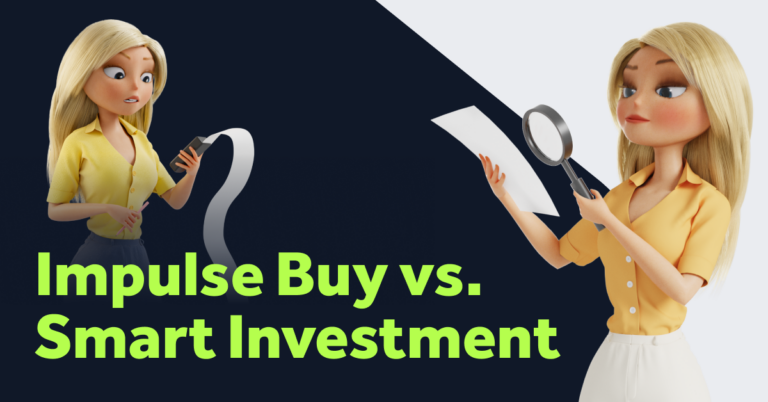2018 has been coined as many things; the age of the entrepreneur, the year Crypto is truly tested or the most unpredictable football world cup we have had in decades. What trumps all, however, is the year of the investor. Since the beginning of the 21st century, society and business dynamics have evolved to an ecosystem where the same information is available to everyone.

The same information is available to everyone
Decades ago, even still in some cases today, businesses were built on the foundation of being the only one who held exclusive information that creates some kind of value for its customers. For example, a toy distributor in Germany who has a list of efficient (and cheap) manufacturers in Taiwan to produce their products. Enter Alibaba. Or a travel agency in the UK with a system which has access to the best and cheapest flights. Welcome Skyscanner. Even financial brokers who have access to the best financial products. Now there are multiple comparison websites in all different kinds of industries.
Now, the power is with the individual. Whether you are looking to take out a loan to finance a dream project or if you want to invest to achieve financial independence. Not only can individuals use comparison websites to find the best deals for car insurance, home insurance, mortgages, credit cards and more – they can take complete control of things that were previously considered as exclusive for the ultra-rich.
Investing, by nature, is often a taboo topic. Put simply, you are using your money to make more money. That is all. The anxiety raised by the word investing is likely due to a lack of knowledge on the topic – in reality, it’s a simple process. There are hundreds of different ways to invest; such as real estate, stocks, bonds, and Peer-to-Peer lending. And more complicated ways like forex and derivatives trading. But we’re not going to talk about the complex stuff today. Below, we’ve added a comparison of the 3 best ways to invest based on the time required, previous experience needed and starting capital. This should give you an indication of which is most suitable for you.

The 3 best ways to invest in 2018
1. Stocks and shares
- Time required – medium
- Previous experience needed – high
- Starting money – low
A share is quite simply a small piece of a company that you can buy and sell through a broker. You can buy shares individually or invest via a fund, which is a basket of different shares. If you’re buying shares yourself, there are several things to consider to assess if it’s a worthwhile long-term investment:
- What is the financial performance of the company?
- What is their industry? Does it have promising growth?
- Is the stock under or over-valued?
- What is the market capitalization of the company?
These are the basic questions you should keep in mind when you are filtering through different companies. Depending on the conclusions you draw, you should be able to identify the volatility and potential future growth of this company. In other words, how likely it is to fluctuate in price, by what percentage and over what time period. That being said, just because a company is considered as “blue-chip” (well established, financially sound, etc) is not any guarantee that you will achieve a good net return from your investment.
Today, there are plenty of platforms which allow you to buy and sell shares directly through them without the need for any special licenses or experience. Be aware, the prices charged by said platforms vary significantly. Not only will some charge you a fee for buying AND selling – they will have different spreads. In short, this means their buy and sell prices have a wider amount and they pocket the difference.

In the end, the responsibility lies with you. As we mentioned before, there are a high number of platforms that will allow you to trade via their services however the responsibility is likely to remain completely with you. When you invest in stocks and shares, there is a possibility that you could lose everything.
You could lose everything
If you think it’s unlikely for your stock to go to 0, you’re not the first to think this way. Lehman Brothers were one of the world’s most established investment banks. Founded in 1844, the company had a solid track-record of surviving hostile conditions like the 1930’s depression and two world wars. In the years leading up to the 2008 global financial crisis, Lehman turbo-charged its acquisitions and securitizations in the U.S. mortgage market – they had 25,000 employees. In 2007, the global investment bank reported a record net profit of $4.2B and a revenue of $19.3B. On the 15th September 2008, Lehman filed for the largest bankruptcy in history resulting in the stock price plunging into the abyss.
On the other hand, if you had invested $5,000 in Amazon’s IPO in 1997 – this would be worth over $2.4M today.
2. Real estate
- Time required – high
- Previous experience needed – medium
- Starting money – high
Investing in property is one of the oldest methods of growing your wealth. Some of the tycoons and titans of the 20th century amassed their fortunes by investing in prime real estate in cities like New York and London. When the financial crash of 2008 came, the smart money used this opportunity to buy properties far below their market value and are reaping the rewards today.
Location, location, location
There is a multitude of ways to invest in property. The most straightforward and vanilla way to do this is via purchasing a single-occupancy let, which means the whole house or flat will most likely be occupied by a family or individual. Location is regarded as the most important aspect with this strategy because it will have a direct impact on the rental yield.
3 basic things to consider before making a purchase:
- Are there local transport links to central areas? – Rail, bus, motorways
- Is there a shopping center nearby?
- What is the reputation of the schools in the area? Is it likely that someone would like to send their children there?
Over time, you can utilize the capital growth as deposits for other rental properties
The 3 points above should be considered along with the future growth potential of the area, the asking price and how much you anticipate to charge each month to rent it out. If you purchase a €100,000 house and expect to achieve €650 per month in rental income – that’s a 7.8% yield per annum. You should also consider the capital growth of the property. If it’s in a large and growing city then it’s highly likely that the market value in the area will grow significantly over the next decade. Over time, you can utilize the capital growth as deposits for other rental properties. Eventually, this will lead to snowballing your property portfolio.

A disadvantage of property is the liquidity. Even if your property doubles in value to €200,000 in one year, you can only materialize this capital gain if you either sell the property or your bank agrees with your valuation and allows you to release equity in the form of a mortgage. If you’re part of the #buyandhold gang, this shouldn’t concern you too much.
Beware of the costs
Another disadvantage of investing in real estate are the associated costs. In the beginning, it’s likely you’ll experience solicitor’s fees, tax fees, insurance costs, agency fees and more fees from the bank if you’re using a mortgage. Over the period of your ownership, you’ll need pay for any repairs (like a leaking roof!) and for the general upkeep. All of this should be taken into account when evaluating your annual net return.
3. Peer-to-Peer lending
- Time required – low
- Previous experience needed – low
- Starting money – low
Peer-to-Peer lending is the new kid on the block in the world of investing. Despite being around for approximately 10 years, the industry is still growing and maturing. It is the single most disruptive industry within the financial world today, as P2P platforms are directly challenging the services traditionally offered by the banks.
For centuries, banks have offered personal loans, mortgages, credit cards and business loans to their customers with double-digit interest rates. To their customers “investing” in their savings accounts, they pay them a small single digit (even as low as 0.1%!) interest rate. Then they pocket the difference in-between and use these profits to pay their executives and shareholders huge salaries.
The emergence of P2P investing allows the individual to become the bank. You are the lender. Three significant advantages of investing via a P2P platform are:
- The platform is the place that connects the people who are looking to invest and the people looking for a loan. You don’t need to do any sourcing yourself.
- You won’t need any special licenses or need to do any credit scoring. A good platform will take care of everything and may even use advanced proprietary modeling systems to assess the borrowers for you.
No experience necessary. Some platforms have automated investing services which you can activate with a single click of your mouse. - All of this results in a passive income. There’s no need for you to monitor the financial markets for macroeconomic events, no need for any property maintenance or searching for tenants. For the beginner investor, time is usually a significantly undervalued asset. With more time, you can launch a side-hustle, start a new hobby or make more memories with your family.
For the beginner investor, time is usually a significantly undervalued asset
This being said, there are still several risks in Peer-to-Peer lending that you should be aware of. As the industry is relatively new, some of the platforms offering the services themselves are only a couple of years old. The company may be running at a loss (not financially profitable) and since your funds are not protected by any governmental scheme – if the platform goes bankrupt then you could lose your money.
Choose a platform that is financially profitable, trusted and has a track-record of providing a service to investors
What’s more, due to the regulation being different in P2P depending on the country, trust is paramount. If they’re audited by a reputed firm and publicly publish their data, you can use this to come to your own conclusions about whether the platform is reliable.
To find out more about Peer-to-Peer lending, visit the Bondora Blog.


